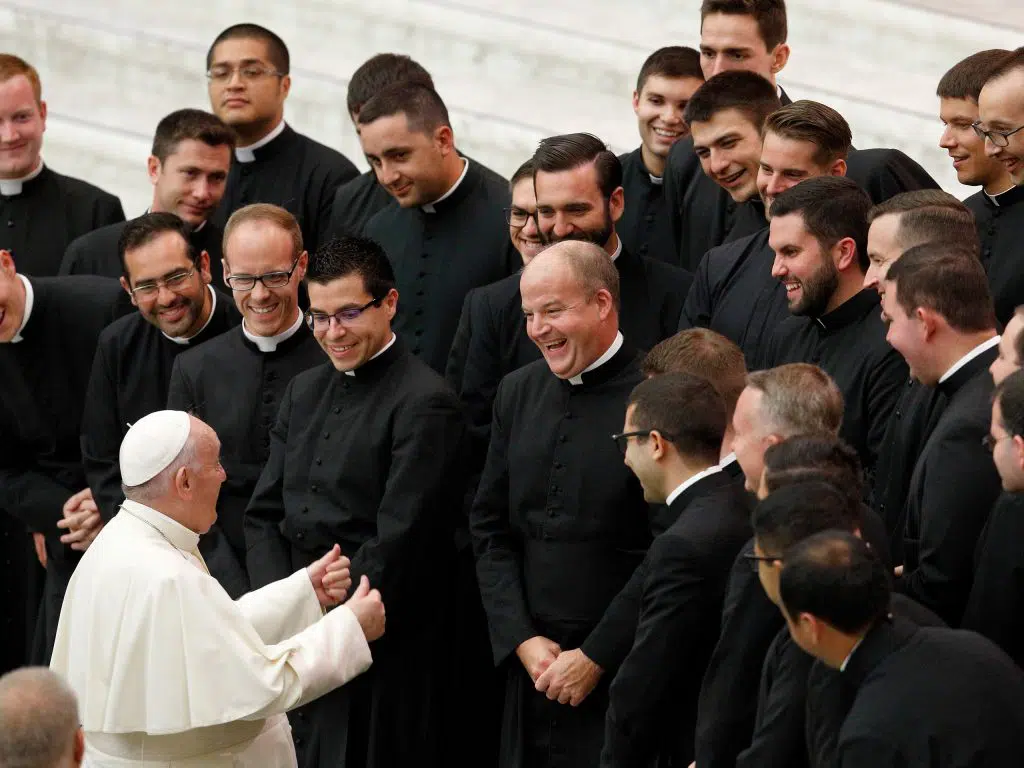Another Christmas Day is ready to dawn. Then we will joyfully commemorate the salvific birth of Jesus Christ, the redeemer awaited throughout the long ages.
The sublime mystery of the Incarnation is our focus. The second person of the most blessed Trinity took flesh, thereby becoming man so that we would be reconciled with God. “He humbled Himself and became obedient unto death, even death on a cross” (Phil 2:8).
The Son of God did not need to become man for himself. He was already perfect — and perfectly happy. But he obeyed his beloved Father and came to earth to pull us out of the spiritual misery caused by the disastrous sin of Adam and Eve.
The General Council of Chalcedon in 451 explained precisely what we recall especially each Dec. 25: “Our Lord Jesus Christ, the same perfect in divinity and perfect in humanity, the same truly God and truly man composed of rational soul and body, the same one in being (homoousios) with the Father as to the divinity and one in being with us as to the humanity, like unto us in all things but sin (Heb 4:15).”
In his sacred divinity, Jesus has existed from before the beginning of time; he is “the Begotten of the Father.” In his sacred humanity, Jesus, at an exact moment in history, was conceived by the power of the Holy Spirit and born of the Virgin Mary; “when the time had fully come” (Gal 4:4), Jesus was born.
This astounding truth of our faith is captured succinctly in the holy name, “Emmanuel.” Jesus, the Son of God and Son of Mary, is “God-with-us.” He is our redeemer and savior, our brother and friend.
During the recitation of the Nicene Creed at any of the three Masses on Christmas Day, we genuflect at the words: “and by the Holy Spirit was incarnate of the Virgin Mary, and became man.” (If the Nicene Creed is chanted, then we kneel.) By bending the knee, we symbolically illustrate how Jesus descended from the loving bosom of his beloved father through the powerful action of the Holy Spirit to heal us.
Jesus has come to us. He has pitched his tent among us and draws us to himself. His precious invitation to go to him is one we must not forgo; we must not dally in responding affirmatively. He knows what will make us happy and holy. Only by clinging to him and his wise commands will we know genuine contentment.
We ourselves cannot satisfy the deepest longing of our souls for everlasting life. Jesus is the only savior. Without him, we will not enter heaven.
Jesus’ coming to us, if it is to have the fullest effect that he desires, must be met with our receptivity. Our souls must yield to the God who has become man. Our surrender to the Messiah is particularly demonstrated by our daily prayer, frequent and worthy reception of the sacraments, and acts of charity and penance.
The Incarnation is one of the chief tenets of our Christian faith. The more we understand it, the more we can permit it to have a profound and abiding significance in our lives.
Our Blessed Mother, St. Joseph, and the shepherds and Magi who hurried to the rustic manger to behold the Prince of Peace were onto something. They knew that not just anyone occupied that humble bed of hay. The God-Man, the Incarnate Word (Logos) of the father, had come to earth.
“Come, let us adore him.”
Msgr. Mangan is on the faculty of Mt. St. Mary’s Seminary in Emmitsburg.



Christ commands us to love